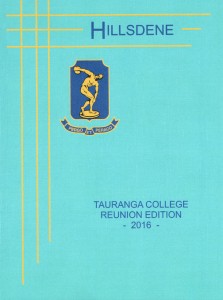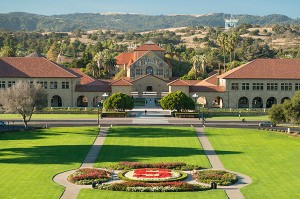Archive for June, 2016
My first cuckoo
Sumer is icumen in
Lhude sing cuccu
Listen to this Medieval rote song

An English oak woodland. Image from Open University on the BBC
My first spring in England, late afternoon in Windsor Great Park. Green-gold light through ancient oaks, the air rich with leaf-mold and violets. A cuckoo calls. I have heard the sound all my life, in music and poems, but never before in the wild.
Listen to the cuckoo calling in this recording from the British Library
As I stand listening, this spring in 1962, something shifts in my thinking. It is as if previously I saw the world through two mesh screens, one named Southern Hemisphere and the other Northern Hemisphere, half a year out of alignment with each other, so that my view was blurred by the moiré patterns their meshes made. The religious festivals my ancestors brought from the northern hemisphere when they emigrated to New Zealand lost their old association with the seasonal cycles of life and death when celebrated in the reversed seasons of the southern hemisphere. In consequence, I felt, even as a child, a subtle sense of having been cut off at the roots, of being, even after several generations, transplanted British.
Images float into my mind. Mid-morning, Christmas Eve, at All Saints Church in Tauranga, NZ. Strewn mounds of flowers deck the chancel steps. The Altar Guild ladies are filling shiny brass vases that stand either side of a red-draped altar. Bronze-purple foliage of copper beech, fans of gladiolus spikes, the tropical exuberance of canna. They add dahlias, roses, bougainvillea until the reds vibrate.
Sunlight through stained glass glitters on the sharp points of holly springs that I strew along the dark wood windowsills, hiding jam jars filled with red geranium flowers. The holly bears no berry here, this time of year, and the carol I hum under my breath echoes in an empty place inside me. Later, at midnight services, the congregation sings of light in darkness and the falling of snow. We emerge to warm air, misty moonlight, and the scent of magnolias. This Christmas is not real, I think to myself. It’s pious make-believe.
Easter: after morning church and family lunch, I gather with siblings and cousins on the porch to smash the Easter eggs we have all been given. Molded of hard sugar, they are pastel pretty, with piped-on decorations of flowers and leaves, the symbols of spring. Having gorged ourselves, we scamper off to scuffle through autumnal leaves.

Cuckoo image from
Royal Society for the Protection of Birds
My reading in college, particularly J.G. Frazer’s The Golden Bough, helped me recognize that Christian festivals have pagan roots: the ritual victim dies at planting time; the winter birth is the rebirth of the sun. As the cuckoo calls again, cu-coo, over and over, quietly, the blurred meshes of my hemispheres resolve and I see through: myself and my people bound by tangled apron strings to the life our forbears left, and to the earth itself, an old reality, almost forgotten.
What I learned at Stanford
The New Zealand high school I went to, Tauranga College, recently celebrated its 70th anniversary and hosted a reunion for those who attended the college before 1957, the year it split into two single-sex schools. I was one of four alums invited to give a five-minute talk on some aspect of our lives. I was in prestigious company: an emeritus professor of chemistry, the manager of New Zealand’s cricket team during many of its World Series tours, and a researcher doing impressive work in health economics. I chose to talk about my 20 years as an administrative writer and editor at Stanford University, a relatively low-level job, but one in which I had considerable personal satisfaction.
Later that day, many women came up to me to tell me how much they appreciated my words. “I felt affirmed,” one woman said. Our generation was taught rather firmly that a woman’s role in life was to marry and take care of husband and children. Many of course took on paying jobs and volunteer work, but “women’s work” was not highly valued in that strongly patriarchal society.
Here’s the text of my talk:
What I learned at Stanford
I’m sure most of you have heard of Stanford University. The name might bring to mind words like Silicon Valley, medical breakthroughs, prestigious think tank. There’s another, less visible part of the story: the staff work that keeps the university going.
I’m still amazed at how I found myself there in 1979. I was easing back into the job market after being a home-maker and struggling freelance writer. At a neighborhood gathering, I learned that the Stanford administration had a crisis. The federal government was changing the rules for how to calculate the indirect costs for research contracts and grants. (For instance, how much of the university’s electricity cost can reasonably be charged against a particular contract.) When the finance department and the research department put together task forces to figure out how to implement the new rules, they discovered that the faculty doing the research had no idea what the accountants were talking about. They needed someone to translate accounting-ese into English. Could I do it? my neighbor, a Stanford professor, asked. At that time my accounting knowledge was zilch. But what I did have, as a journalist, was the ability to ask the dumb questions that would get me a highly technical story in everyday language. So I was taken on, and within a couple of weeks was ghost-writing memos for the Controller and the Dean of Research.
I stayed at Stanford for twenty years, working on projects related to administrative systems and policies, and support networks for department administrators. During that time, Stanford administration was going through a sometimes painful transition to the world of computers. Imagine if you will a dark basement in an old stone building. Rows of desks are filled with elderly women, most of whom have been there forever, processing Accounts Payable by hand. They’ve never touched a computer, and they’re terrified.
I was part of a group doing our best to help ease this transition. For instance, when I became editor of Stanford’s annual financial report, the entire $450 million of income and expenditures was typed up and tallied by hand. I brought in someone familiar with a computer spreadsheet program to reduce the manual labor. As editor of administrative policies, I headed up an Information Technology skunk works to fulfill a dream of making all the university’s policy and procedure documentation available online. (This was in the early 1990s, before the World Wide Web took off.) I also designed and implemented support programs to gently persuade computer-phobic department administrators to give up their paper copies and use the new system. These programs were the topic of papers that I presented at national conferences.
Sometimes I would ask myself: Does anyone really understand how much power I have? How is it that I, a relatively low level administrative analyst and editor, am dictating annual report deadlines to Stanford’s prestigious external auditors, or leaning on vice-presidents to update their policies, or even writing the policies for them?
The answer is that there are two kinds of power. One is hierarchical: you’re the boss, so you have the right to tell those under you what to do. The other kind of power is interpersonal: if people trust and respect you, they will willingly help you implement a common goal. I learned at Stanford that trust and respect are really all that matter.

